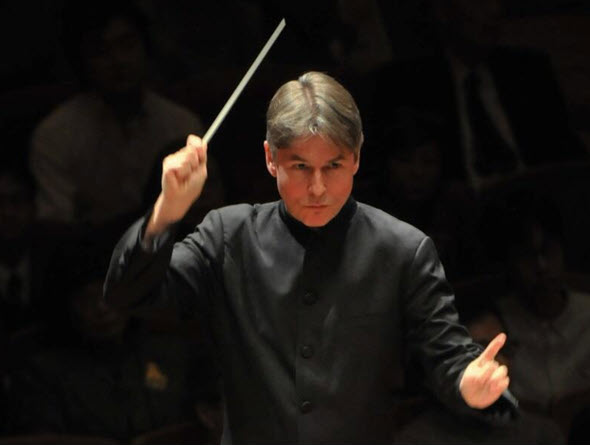Chicago Symphony’s 2024-25 season reveals zesty ingredients of Muti, Mahler and Mäkelä
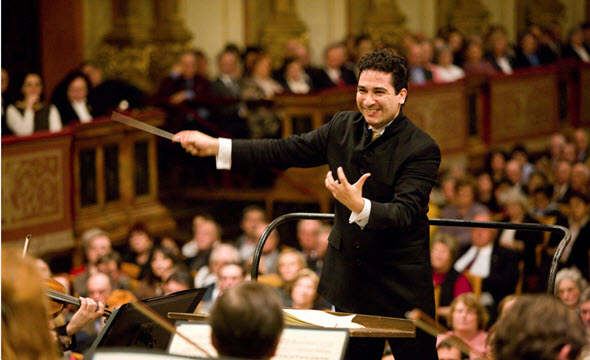
Colombian conductor Andrés Orozco-Estrada will preside over the CSO’s season-opening concerts. (Werner Kmetitsch photo)
Report: Conductor Klaus Mäkelä joins a flurry of late-season Mahler, and Riccardo Muti caps his four programs with a Berlioz spectacle.
By Lawrence B. Johnson
The Chicago Symphony Orchestra’s newly announced plans for its 2024-25 season are, if one might make such a distinction, intriguing and fraught with intrigue. First is the season itself and the bundle of enticing concerts it holds, not least an autumn-anchoring Beethoven program led by CSO music director emeritus for life Riccardo Muti and his season-ending return with a high-powered rarity, Berlioz’ “The Damnation of Faust,” a spectacle for orchestra, chorus and soloists.
But of course, what’s uppermost in the minds of the Chicago Symphony’s most ardent followers is the question of who will succeed Muti as music director and whether that answer might be forthcoming sometime in 2024-25. While mum remains the word at Symphony Center, from the orchestra world’s most active rumor mill, the website called SlippedDisc and its purveyor Norman Lebrecht, comes an unequivocal assertion that the choice has been made and that it’s “the worst-kept secret” in the biz. The CSO’s music director-elect, says Lebrecht, is the dazzling 27-year-old Finnish conductor Klaus Mäkelä, who indeed returns to the CSO for a pair of programs in the latter part of next season.
The CSO’s official reply to the Mäkelä rumor: silenzio, or hiljaisuus in Finnish. An orchestra spokesperson offered “no comment.”
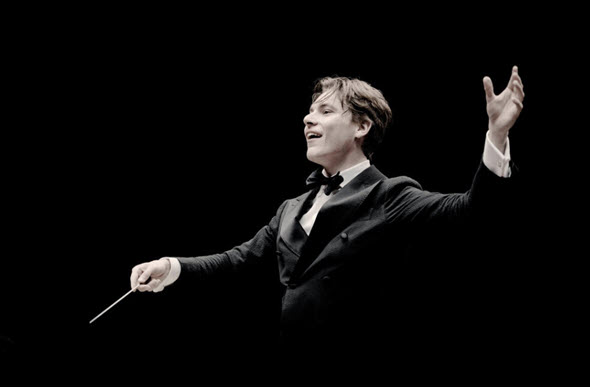
Klaus Mäkelä’s two CSO appearances will include an evening-length Mahler Third Symphony. (Marco Borggreve photo)
Mäkelä would be a remarkable choice, not only because of his youthfulness but also because he’s already signed up to become principal conductor of Amsterdam’s Royal Concertgebouw Orchestra in 2027. Between now and then, this meteoric maestro will have increasing commitments in Amsterdam.
In a 2024-25 season that holds many alluring concerts, Mäkelä’s two appearances fall amid a cluster of programs that will point the Chicago Symphony toward its May 2025 participation in an international Mahler festival in Amsterdam.
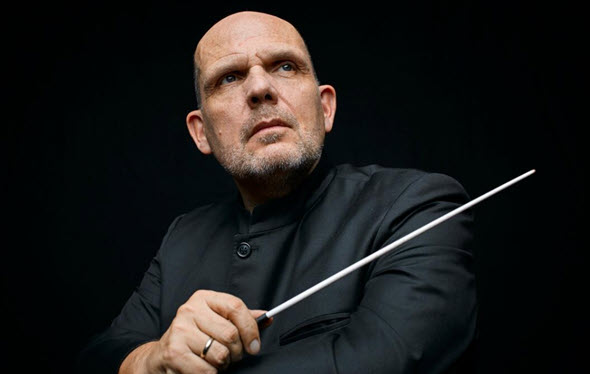
Jaap van Zweden will lead the CSO in two Mahler symphonies here, then again in Amsterdam. (Brad Trent photo)
At Orchestra Hall, conductor Jaap van Zweden, who will lead the CSO in performances of Mahler’s Seventh Symphony (April 17-19, 2025) and Sixth (May 8-9) before taking the orchestra to Amsterdam for performances of those two works at the Mahler festival. Adding to the CSO’s spring flourish of Mahler, Mäkelä will preside over the vast Third Symphony April 24-26, 2025.
Mäkelä’s other program, which also comes in that stretch (May 1-4, 2025), spotlights pianist Daniil Trifonov, the CSO’s artist in residence for the 2024-25 season, in Brahms’ Piano Concerto No. 2 on a bill with Dvořák’s Seventh Symphony.
The season opens with Colombian conductor Andrés Orozco-Estrada and violinist Hilary Hahn, the CSO’s current artist in residence, performing the Barber Violin Concerto on a program with works by Bernstein, Tchaikovsky and Ginastera (Sept. 19-20). Composer John Williams is joined by violinist Anne-Sophie Mutter for a single performance of his Violin Concerto No. 2 and excerpts from his film scores Oct. 22, with the composer on the podium.
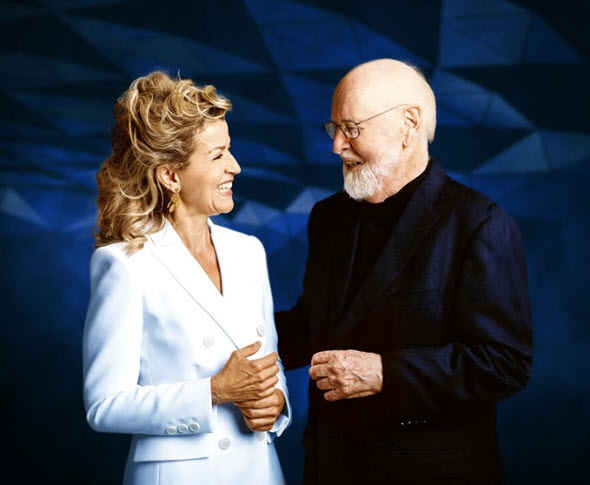
Megastar night: Anne-Sophie Mutter plays John Williams Violin Concerto No. 2. He conducts. (Dario Acosta photo)
In mid-autumn, the Berlin Philharmonic returns to Orchestra Hall with its music director, Kirill Petrenko, for an evening devoted wholly to Bruckner’s Symphony No. 5 in B-flat (Nov. 26).
Other highlights of the CSO’s 2024-25 season:
- Muti leads a Beethoven pairing of the “Eroica” Symphony and the “Emperor” Piano Concerto with soloist Mitsuko Uchida (Oct. 31-Nov. 3). These two prime cuts of Beethoven are indeed “eroica” front to back: Both works are in the composer’s “heroic” key of E-flat major.
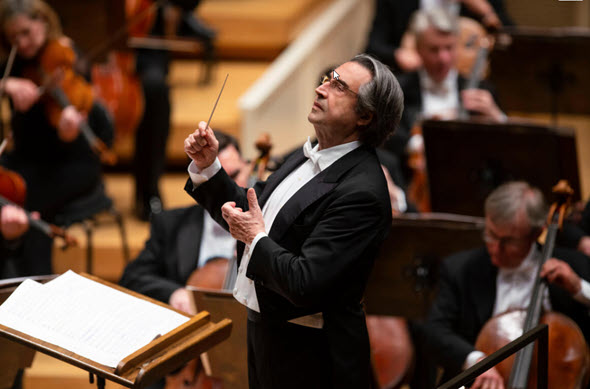
Riccardo Muti pays four visits, the last a grand production of Berlioz’s “Damnation of Faust.” (Todd Rosenberg photo)
- The Polish-born German conductor Marek Janowski, now 85 years old, leads Bruckner’s Symphony No. 3 in D minor on a program with Liszt’s Piano Concerto No. 2 featuring Swiss pianist Francesco Piemontesi (Nov. 14-16). While the Third Symphony is among Bruckner’s less frequently performed works, it won the immediate admiration of Wagner.
- Lahav Shani, music director of the Israel Philharmonic, does double service as conductor and soloist in Shostakovich’s Piano Concerto No. 2. Beethoven’s “Egmont” Overture raises the curtain, and Brahms’ Symphony No. 1 fills the concert’s second half (Dec. 19-21).
- Esa-Pekka Salonen, an old friend of the CSO and now music director of the San Francisco Symphony, opens a two week visit to Orchestra Hall with his own Sinfonia Concertante for Organ and Orchestra, Strauss’ “Don Juan” and Bartók’s Concerto for Orchestra (Jan. 30-Feb. 4, 2025).
- Salonen’s follow-up program is also a don’t-miss event: Bartók’s searing opera-for-two “Bluebeard’s Castle,” with mezzo-soprano Ekaterina Gubanova and bass Christian Van Horn. In that prospect, Beethoven’s Symphony No. 2 becomes an aperitif (Feb. 6-8, 2025).
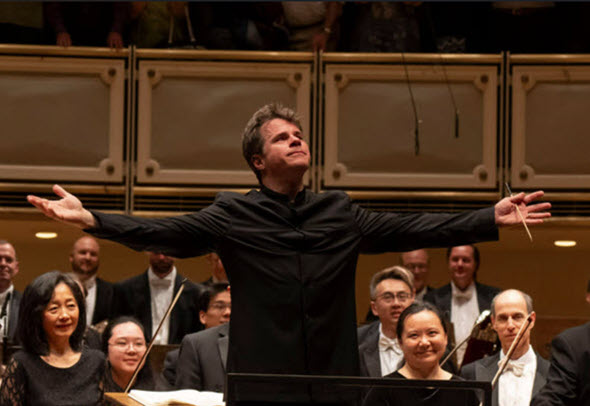
Czech conductor Jakub Hrůša brings Shostakovich’s sweeping Symphony No. 11 to Orchestra Hall. (Todd Rosenberg photo)
- The CSO’s “worst-kept secret” may augur one thing, but no less plausible or propitious would be the choice of Czech conductor Jakub Hrůša as Muti’s successor. Hrůša returns to Orchestra Hall with Shostakovich’s Symphony No. 11 (“The Year 1905”) and a Rachmaninoff rarity, Piano Concerto No. 1 with the Macedonian soloist Simon Trpčeski (March 20-22).
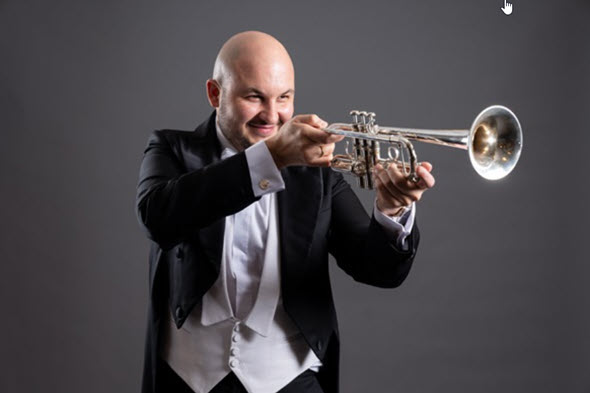
CSO principal trumpet Esteban Batallán steps up to play two concertos on a program with Muti. (Todd Rosenberg photo)
- The season’s final two weeks belong to Muti, and they are special. The CSO’s former music director turns the spotlight on principal trumpet Esteban Batallán for concertos by Telemann and Michael Haydn framed by symphonies by Joseph Haydn and Schubert (June 12-14).
- The closer is prodigious: Berlioz’ “The Damnation of Faust,” which the composer dubbed a “dramatic legend.” Muti will preside over a grand company of orchestra, chorus, children’s chorus and four vocal soloists. It’s where you want to be. (Three performances spread over June 19-24).

